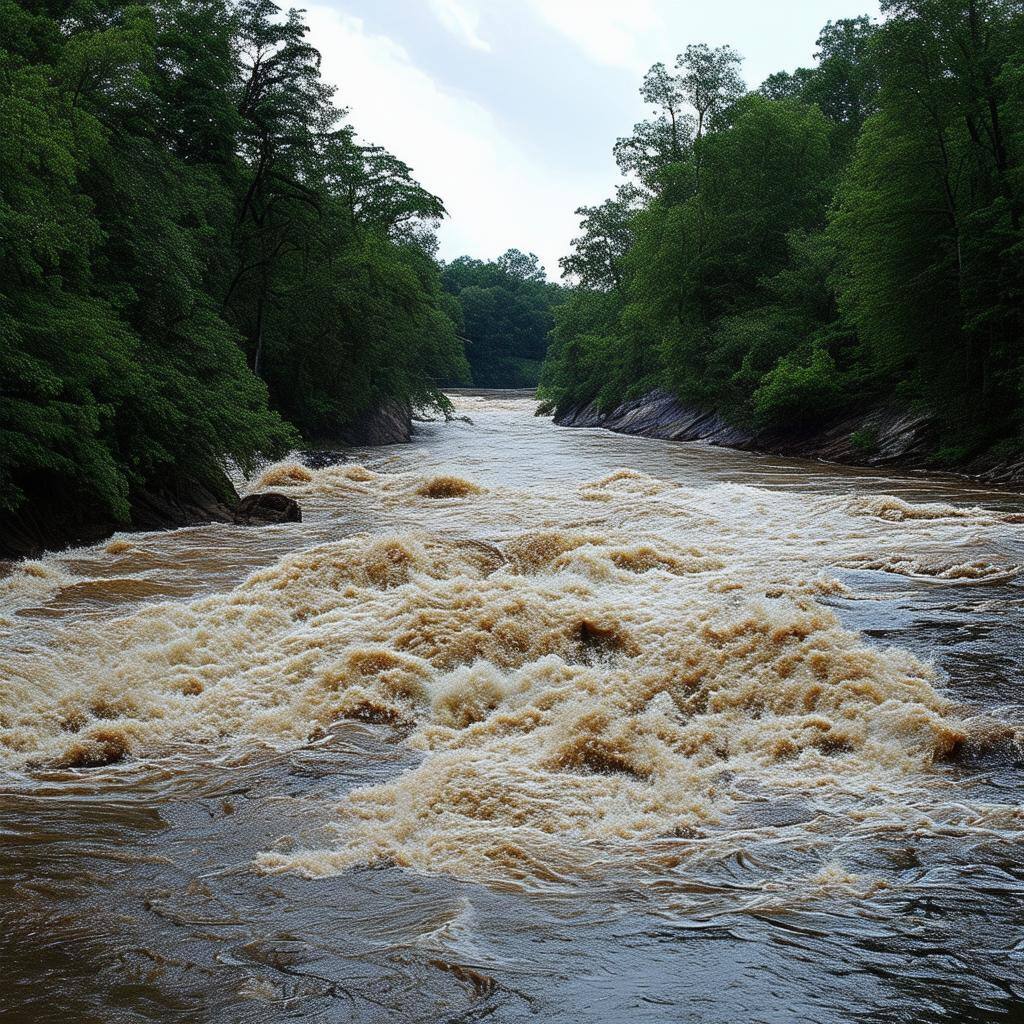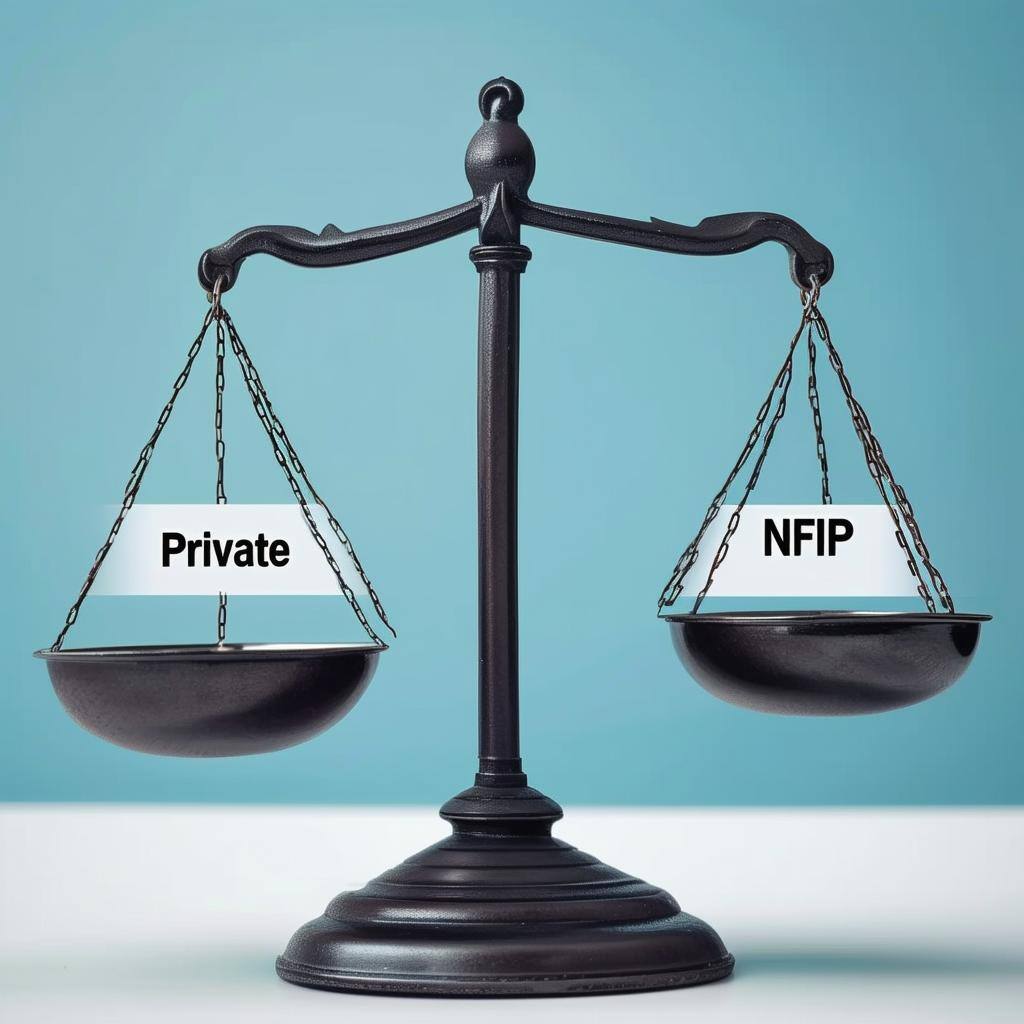Flood Insurance in Macon, Georgia – Protect Your Home from Flood Risks
Living in Macon, GA, offers a wonderful lifestyle, but it also comes with flood risks—especially for areas near the Ocmulgee River. From seasonal storms to flash floods, water damage can happen unexpectedly. Protecting your home with the right flood insurance is essential.
This guide simplifies the complexities of flood insurance, covering everything from local flood risks and FEMA flood zones to coverage options and costs. With our expertise and commitment to Macon homeowners, we’ll help you make informed decisions and secure your home.
Don’t wait for the next storm—explore your flood insurance options today.
Flood Insurance in Georgia
Looking for flood insurance in Georgia? Just locate your area in the search bar. Can’t find your city no problem we service the entire state of Georgia.
Don't See Your City? Click Here.

Understanding Flood Risk in Macon, GA
Hey Macon homeowners! Flooding is no joke, especially if you live anywhere near the Ocmulgee River or areas prone to heavy rain and flash floods. One thing I’ll tell you right off the bat: your standard homeowners policy won’t cover flood damage. That’s why getting flood insurance isn’t just smart—it’s necessary.
Floods don’t care if it’s your first house, your dream home, or the family business. When the water rises, you need protection. I’m here to break it all down so you can get the right coverage without feeling overwhelmed. Let’s dive in!
Proximity to water sources
Homes near rivers or creeks are more prone to flooding.
Urban Development
Increased construction can strain drainage systems, leading to flash floods.
Storms and Rainfall
Heavy storms can quickly flood streets and neighborhoods, posing risks for both homes and businesses.
What Makes Macon a Flood Risk?
Macon’s beautiful, but its flood risks are real. It’s not just the rivers you have to think about. Seasonal storms, heavy rains, and even urban development play a part in raising the flood risk. Here’s what you should know:
- Flash Floods Happen Fast: You could be sleeping soundly one minute, and the next, a street near you is under water. Heavy storms can flood neighborhoods within hours.
- Tropical Storms Bring the Pain: Just look at Tropical Storm Alberto in 1994—widespread damage, homes lost, businesses ruined. And that storm wasn’t an outlier. Macon is in a zone where storms roll through fast and hard.
- Urban Expansion Strains Drainage: The more roads and buildings we add, the harder it is for the ground to absorb water. That’s a recipe for flash flooding.

Macon’s Flood Zones: What They Mean for Your Insurance
The Federal Emergency Management Agency (FEMA) designates flood zones to assess risk and determine whether you’ll need flood insurance for your mortgage. Here’s the breakdown:
- Zone A & AE: These are high-risk areas—think spots along the Ocmulgee River. If you have a mortgage through a federal lender, you must carry flood insurance. These zones are no joke; they’ve seen some serious flood events.
- Zone X: This is considered low to moderate risk, but don’t be fooled—just because it’s not required doesn’t mean you won’t need it. About 20% of flood claims come from low-risk areas. Coverage is still worth it for peace of mind.
Want to know your zone? Use the FEMA Flood Map Service Center to check by address. Knowing your zone helps you understand your flood risks and premiums.

The Right Flood Insurance: What Coverage Works for You
Not all flood insurance is created equal. Here’s a look at the key coverages that can save your bacon when the waters rise:
1. Building Property Coverage:
This one’s a must. It protects the structure of your home—walls, floors, plumbing, and built-ins like cabinets or appliances. If floodwater damages your property, this coverage ensures you can repair or rebuild without going broke.
2. Personal Property Coverage:
Think about all the stuff inside your house—furniture, clothes, electronics, family heirlooms. When floodwater gets inside, the cost to replace those things adds up fast. This coverage protects your belongings and helps you get back on your feet without dipping into savings.
3. Additional Living Expenses (ALE) Coverage:
If the flood forces you out of your house, ALE will cover hotel bills, meals, and even storage fees for your belongings. The National Flood Insurance Program (NFIP) doesn’t always offer this, but many private policies do. ALE coverage means you can maintain your standard of living even when you’re displaced.

NFIP or Private Insurance: Which One is Best?
The NFIP is solid, but it has limits. It caps out at $250,000 for the building and $100,000 for personal belongings. Plus, it doesn’t always cover ALE. If you need higher limits or want more flexibility, private flood insurance might be the way to go.
Here’s the deal:
- NFIP: Great if you’re in a high-risk zone and need federally-backed insurance. But, it’s not perfect—there’s a 30-day waiting period for coverage to kick in, so don’t wait until the forecast says rain to get insured.
- Private Flood Insurance: These policies often offer higher limits, more customized coverage, and they include ALE. Private options can also give you better rates, especially if your home sits above the Base Flood Elevation (BFE).
Pro tip: Get quotes from both NFIP and private insurers. This way, you’ll know what fits your needs and budget.

How Much Does Flood Insurance Cost in Macon?
Flood insurance premiums in Macon typically range from $800 to $1,200 per year, but your exact cost depends on:
- Flood Zone: Properties in Zone AE pay more due to higher risk.
- Elevation & Location: Homes on higher ground or farther from rivers enjoy lower premiums.
- Deductibles & Coverage Limits: Increasing your deductible can bring down your premium, but make sure you can handle the out-of-pocket cost if you file a claim.
Got a home sitting below the Base Flood Elevation (BFE)? That’ll likely mean higher premiums. But if you raise your home, you could save big bucks.

Smart Flood Mitigation: Reduce Risk, Lower Premiums
Here’s how to floodproof your home and save money on insurance:
- Get an Elevation Certificate (EC): This document shows your property’s elevation compared to flood levels. Insurers love it and may lower your premiums if your home sits higher than expected.
- Install Flood Vents: These vents allow water to flow through your foundation, reducing structural damage—and lowering premiums.
- Elevate Key Systems: Raise HVAC units, water heaters, and electrical panels above potential flood levels. FEMA likes that—and so do insurers.

Don’t Wait—Get Covered Before the Next Storm
Flood insurance is an investment in peace of mind. Whether you're in a high-risk zone or just want extra protection, we’ve got your back. Contact us today for a free flood insurance quote and find the policy that works for you. Let’s make sure your Macon home is ready for whatever Mother Nature throws your way.
Macon's Flood Risks Demand Preparedness
With its proximity to the Ocmulgee River and history of severe weather events like Tropical Storm Alberto, Macon is vulnerable to flash floods and heavy rainfall, making flood insurance essential.
Know Your Zone and Coverage Options
High-risk zones (A & AE) require flood insurance for federal mortgages, while Zone X offers peace of mind with optional coverage. Compare NFIP and private insurance to find the right policy—private insurers may offer higher limits and additional perks like ALE coverage.
Mitigation Strategies Can Save Money
Elevation certificates, flood vents, and raising key systems help lower flood risks and reduce premiums. Getting insured now—before the next storm—ensures your home and finances are protected when flooding strikes.
Frequently Asked Questions for Macon Homeowners
Is flood insurance mandatory for everyone in Macon?
No, but it’s required if you’re in a high-risk zone (A or AE) and have a federally backed mortgage.
How do I check my flood zone?
Use the FEMA Flood Map Service Center to look up your property by address
Can I save money by raising my home?
Absolutely. Homes above the Base Flood Elevation (BFE) often qualify for lower premiums.
Learning Center
Looking for more information on flood risk and insurance protection?



